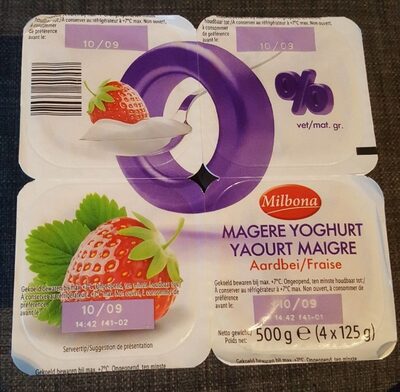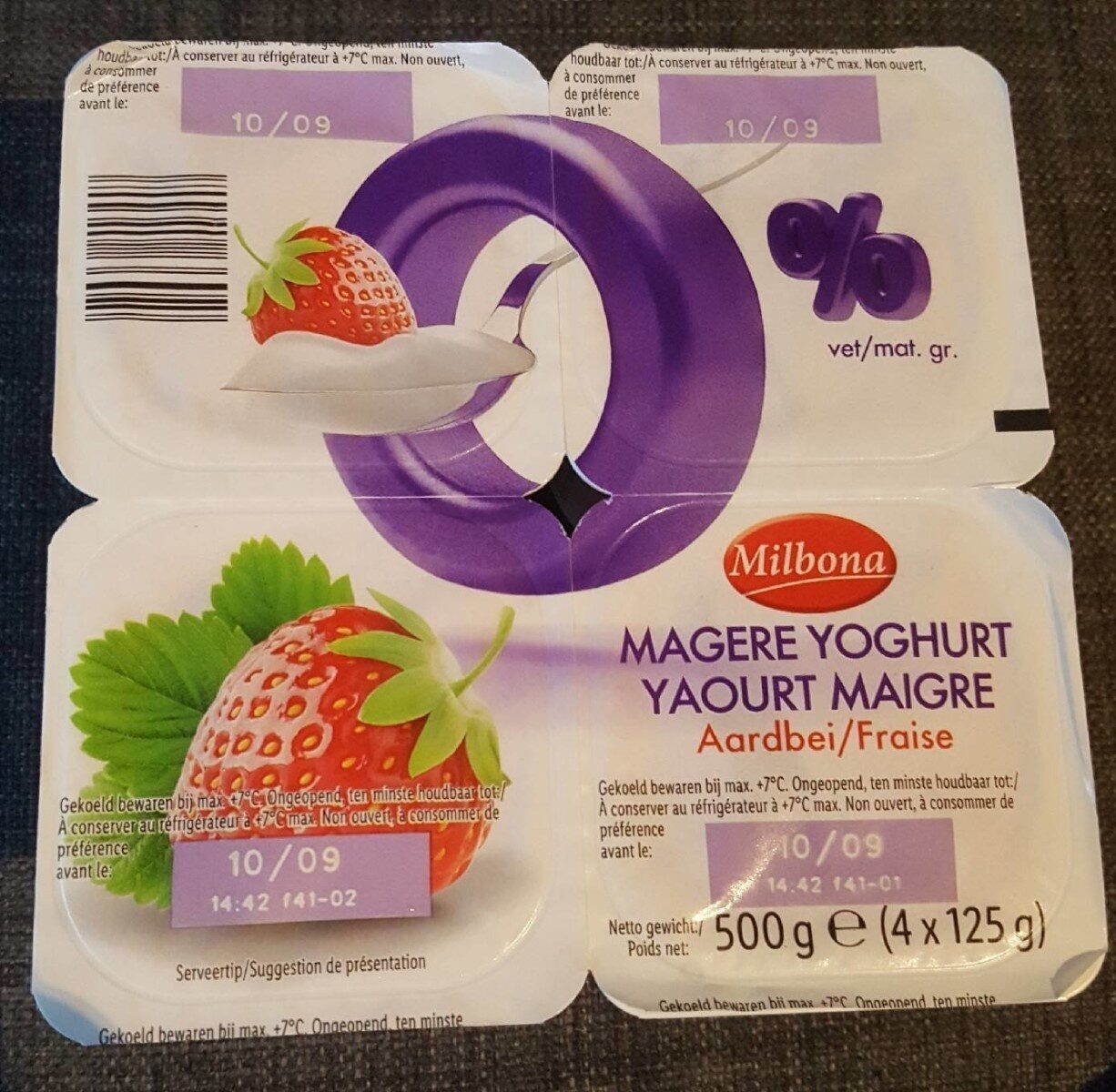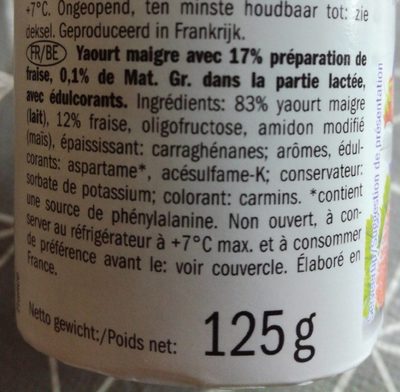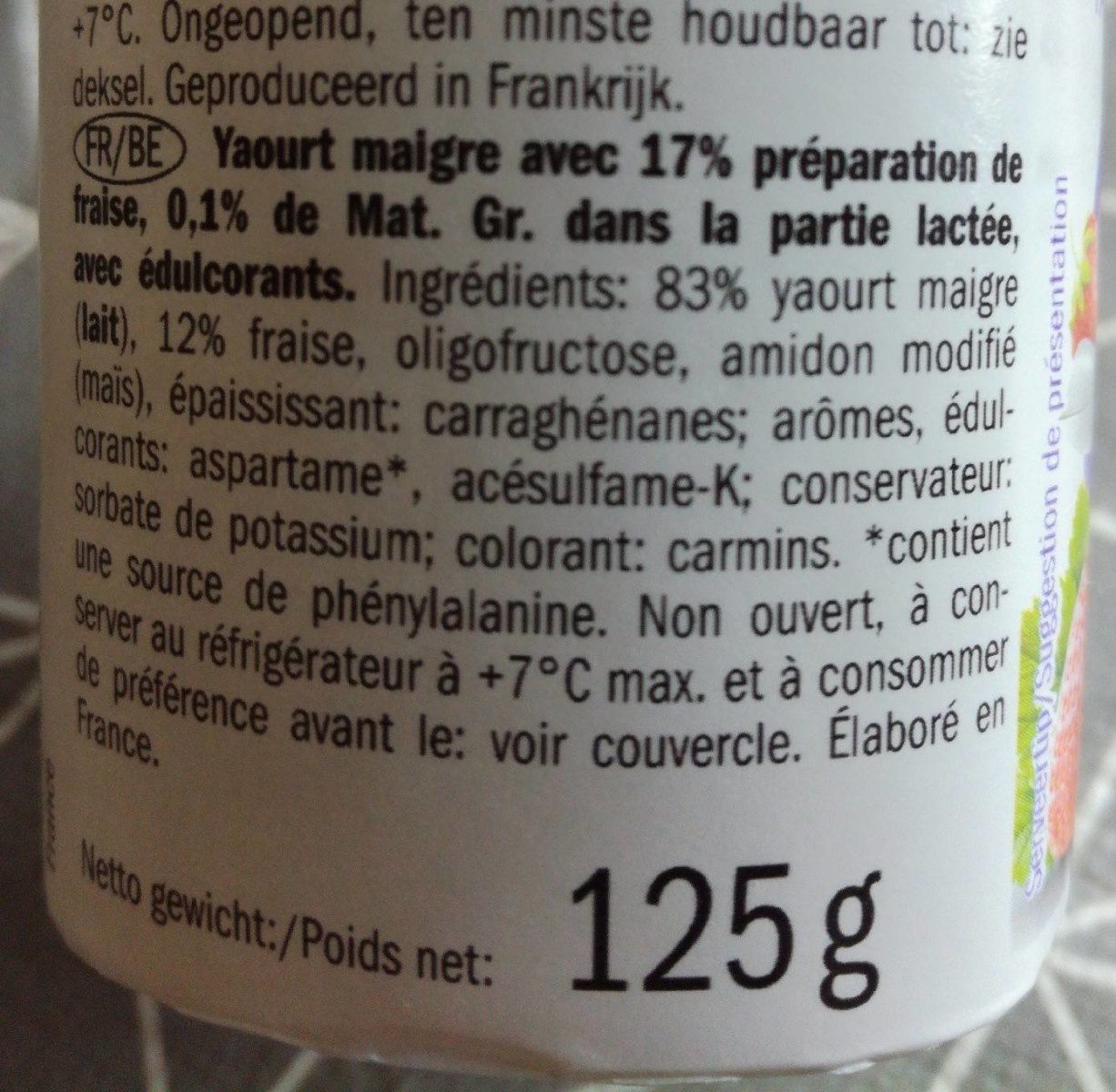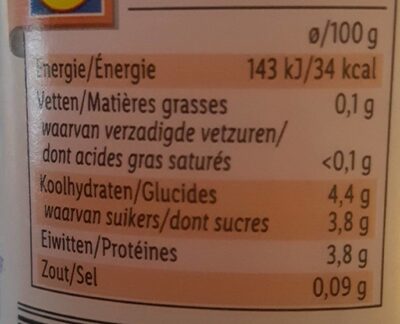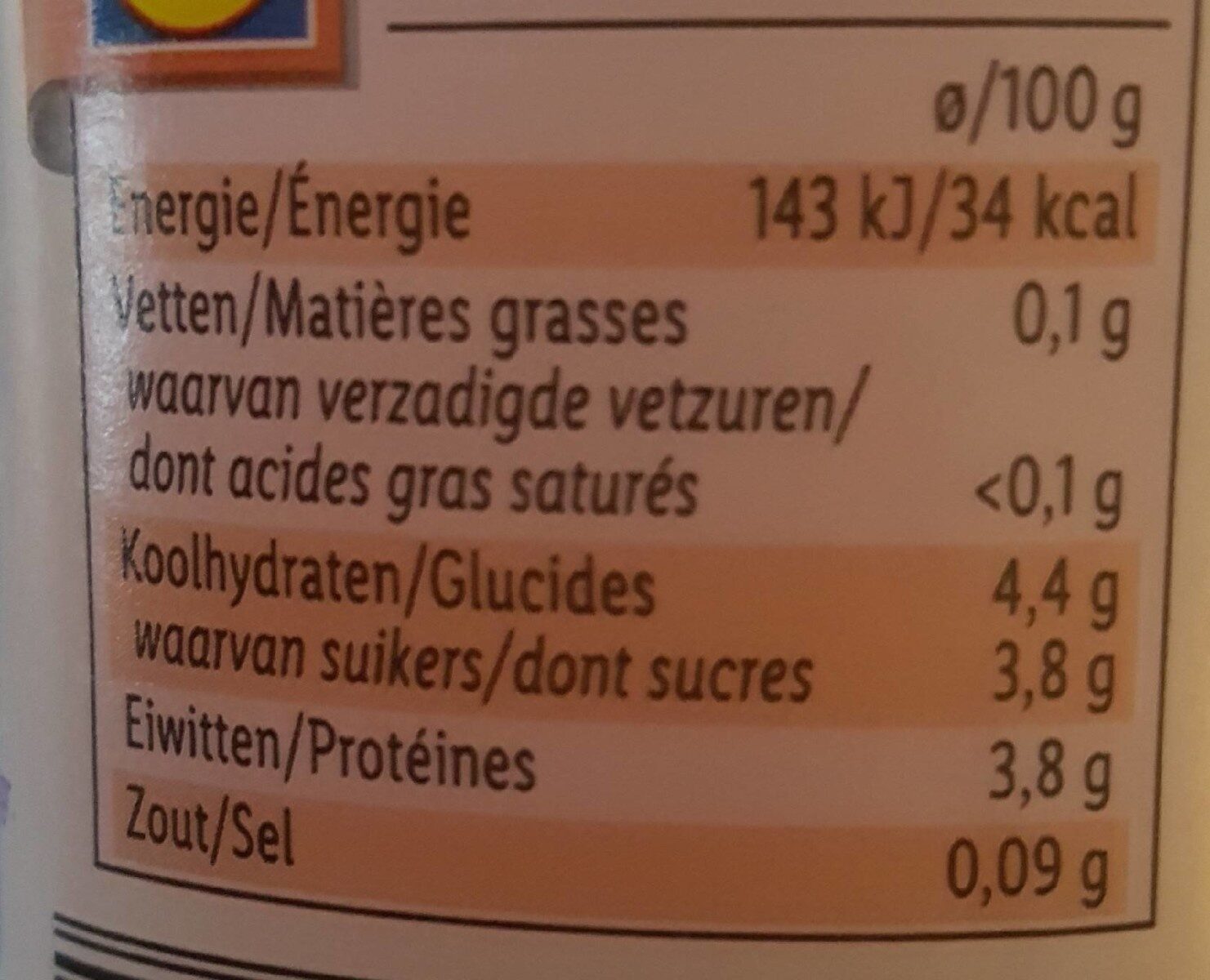Yaourt maigre aux fraises - Milbona - 125 g
Ambiguous barcode: This product has a Restricted Circulation Number barcode for products within a company. This means that different producers and stores can use the same barcode for different products.
×
This product page is not complete. You can help to complete it by editing it and adding more data from the photos we have, or by taking more photos using the app for Android or iPhone/iPad. Thank you!
×
Barcode: 20916602
Quantity: 125 g
Packaging: Pot
Brands: Milbona
Categories: fr:Yaourt maigre
Labels, certifications, awards: fr:Milbona
Origin of ingredients: France
Manufacturing or processing places: France
Traceability code: CS41089
Stores: Lidl
Matching with your preferences
Environment
Packaging
Transportation
Report a problem
Data sources
Product added on by openfoodfacts-contributors
Last edit of product page on by packbot.
Product page also edited by inf, kiliweb, roboto-app, sebleouf, soumar, yuka.COxbOfeQDtMeRvHo-JM5hAmGO-6-Bu9hM3IJog, yuka.IYBbZ8yTGP1_BvrXiNwJhzybEdy4DqRFPmNcow, yuka.YktVd0RJTVB0NkV3dDhBZS9oRHYyUGhvbTQyYmVXZnBFT1VjSVE9PQ.
